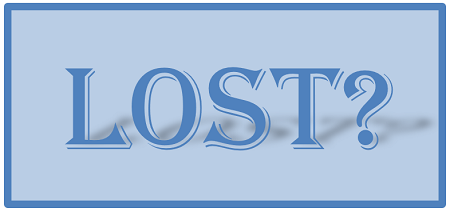June 15, 2010.
Are ten tribes of Israel somewhere lost, only to be rediscovered in the last days? The descendants of Israel (Jacob) were one people for about 900 years. Then for about 200 years, they were divided into two nations: Judah and Israel. The two-stick prophecy in Ezek. 37:15ff says they will one day be reunited. Is the fulfillment past history or yet to our future? Are the ten tribes lost?
It is a fact that a remnant of Judah returned from captivity after 70 years to reestablish themselves in Palestine, whereas the ten tribes of Israel never again became a political entity. What happened to them? Keep in mind that the northern kingdom of Israel, from start to finish, perpetrated an idolatrous religion. The true worship of God, whenever it did exist, was centered in the kingdom of Judah, in Jerusalem. Thus, over the centuries, Israelites of the ten tribes who desired to serve Jehovah God would join themselves, temporarily or permanently, to Judah.
Several times the OT tells of faithful people in the Northern tribes who aligned themselves with Judah. From the beginning of the division, “out of all the tribes of Israel such as set their hearts to seek the Lord God of Israel came to Jerusalem, to sacrifice” (2 Chron. 11:16). Later, Asa “gathered all Judah and Benjamin, and the strangers with them out of Ephraim and Manasseh, and out of Simeon: for they fell to him out of Israel in abundance” (2 Chron. 15:9). After the captivity of the ten tribes, Hezekiah sent letters to “all Israel and Judah” to “the remnant of you, that are escaped out of the hand of the kings of Assyria” and “various of Asher and Manasseh and of Zebulun humbled themselves, and came to Jerusalem” (2 Chron. 30:6, 11). Thus, there were always God-fearing men of the ten tribes that aligned themselves with Judah.
The book of Esther frequently speaks of “Jews.” It is common knowledge that this term comes from the name “Judah” and began to be used widely after Judah’s captivity. But can we limit “Jews” to people of Judah? Wicked Haman obtained a law to kill all the “Jews.” Who were they? “The people of Mordecai… the Jews that were throughout the whole kingdom,” which extended “from India even unto Ethiopia” (Est. 3:6; 1:1). The ten tribes of Israel and two tribes of Judah, by the time of Esther, were scattered from one end of the empire to the other. But wait a minute. I have included all 12 tribes in that statement. And why not? Mordecai was of the tribe of Benjamin. Do you for one moment think that the Persian law would make a distinction between someone from Benjamin and someone from Manasseh, for example? I cannot conceive of that. I conclude that the term “Jews,” by Esther’s time, was applied to all the descendents of Israel (Jacob).
The first-century Jewish historian Josephus agrees with this view. In “Antiquities of the Jews,” he opens his remarks on the events in Esther thus: “The whole nation of the Jews, with their wives and children, were in danger of perishing” (11.6.1). A little later, speaking of the same issue, Josephus says: “entreated that God would provide for their deliverance, and free the Israelites that were in all the earth from this calamity” (11.6.8), thus equating “Israelites with “Jews.” And who were “Jews,” according to Josephus? Throughout his History he uses the term in reference to all twelve tribes. The well-known number of the men of war in Exodus and Numbers is six hundred thousand. Josephus refers to this number several times, once saying, “the Jews, for they being in number six hundred thousand” (4.2.1). On another occasion, he says, “When Samuel had heard this, he called the Jews early in the morning, and confessed to them that he was to ordain them a king” (6.3.5). Josephus calls all twelve tribes “Jews.”
I know of no valid reason to limit the term “Jew” to the tribe or nation of Judah. With the term “Jew” applied to all 12 tribes, there is no basis for “lost tribes.” They are only lost in the sense that they are swallowed up in the term “Jew,” never returning to reestablish a separate nation. In fact, the reality that all descendants of Jacob came to be called “Jews” is in itself a remarkable beginning for accomplishing the fulfillment of Ezekiel 37, which says that the house of Israel will be joined to the house of Judah and they will become one.
